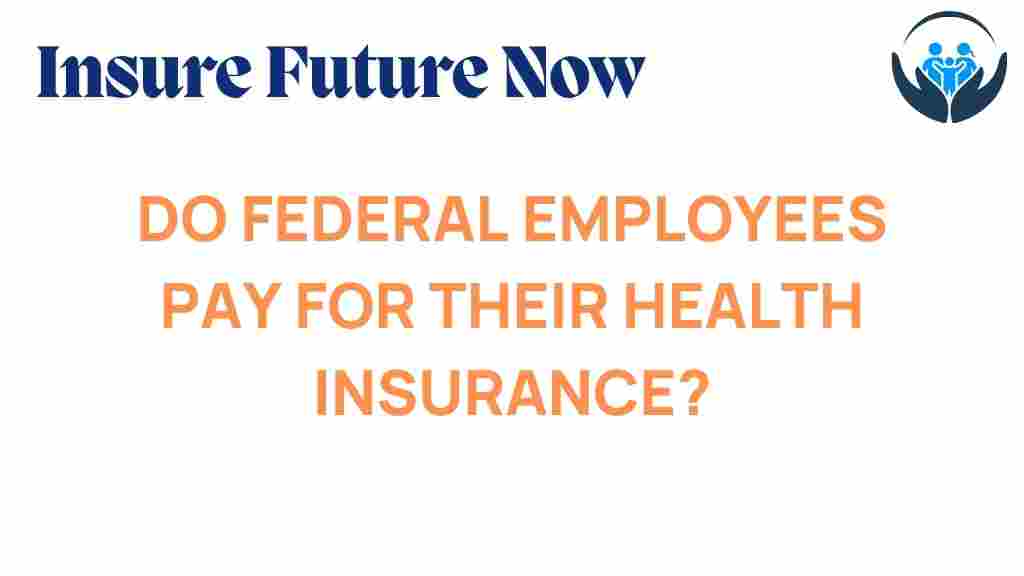Unraveling the Mystery: Do Federal Employees Pay for Health Insurance?
When considering a career in government jobs, many potential applicants often wonder about the benefits that come with federal employment. One of the most pressing questions is whether federal employees pay for health insurance. Understanding the intricacies of employee benefits is essential for those seeking a stable and rewarding career in the public sector. This article will delve into the details of health insurance for federal employees, including how salary deductions work, the costs associated with insurance premiums, and what you can expect regarding healthcare costs.
Understanding Federal Employee Health Insurance
The federal government offers a robust health insurance program known as the Federal Employees Health Benefits (FEHB) Program. This program provides federal employees with a variety of health insurance plans to choose from. Here are some key points to consider:
- FEHB plans are available to all federal employees, including full-time, part-time, and temporary employees.
- Employees can select from various plans, ranging from Health Maintenance Organizations (HMOs) to Fee-for-Service (FFS) plans.
- Benefits may vary significantly between plans, so employees should carefully evaluate their options.
Do Federal Employees Pay for Health Insurance?
Yes, federal employees do pay for their health insurance. However, the amount they pay is influenced by several factors, including the specific plan they choose and their employment status. Here’s a breakdown of how the payment structure works:
- Premiums: Federal employees are required to pay a portion of their insurance premiums, which are deducted from their salary on a pre-tax basis.
- Government Contribution: The federal government contributes a significant portion of the premium costs, often covering around 70% of the total premium.
- Salary Deductions: Employees can expect to see these deductions reflected in their paychecks, which can impact their overall salary.
How the Premiums Work
The insurance premiums that federal employees pay can vary based on the chosen health plan and the level of coverage. Here’s a step-by-step process to understand how these premiums are calculated:
- Select a Plan: Employees review available options and select a health insurance plan that meets their needs.
- Determine Costs: The costs associated with each plan, including premiums, deductibles, and co-pays, are outlined in the plan details.
- Calculate Employee Contribution: Employees are informed of their specific contribution to the premium, which is deducted from their salary.
- Review Annual Changes: Health insurance premiums can change annually, so employees should review their options each year during the open enrollment period.
Understanding the Costs of Healthcare
While the FEHB program offers substantial benefits, federal employees should also be aware of potential healthcare costs beyond premiums. Here are some additional expenses to consider:
- Deductibles: The amount employees must pay out-of-pocket before their insurance begins to cover costs.
- Co-pays: Fixed amounts paid for specific services, such as doctor visits or prescriptions.
- Out-of-Pocket Maximums: The maximum amount an employee will pay in a year before the insurance covers 100% of additional costs.
Benefits of Federal Employee Health Insurance
Despite the costs associated with health insurance, there are numerous advantages to being a federal employee:
- Variety of Options: Employees can choose from a wide range of plans to find one that best suits their needs.
- Government Support: The federal government’s contribution to premiums provides significant savings compared to private sector health insurance.
- Comprehensive Coverage: Many plans cover a broad range of services, including preventive care, mental health services, and more.
Common Questions About Federal Employee Health Insurance
As federal employees navigate their employee benefits, they often have common questions regarding their health insurance. Here are answers to some frequently asked questions:
1. Can I change my health plan?
Yes, federal employees can change their health plan during the annual open enrollment period or if they experience a qualifying life event.
2. What happens if I leave my federal job?
If you leave your job, you may be eligible to continue your health insurance coverage through the Temporary Continuation of Coverage (TCC) program.
3. Are there penalties for not enrolling in health insurance?
There are no penalties for not enrolling in health insurance as a federal employee, but it is highly recommended to have coverage to avoid high medical costs.
Troubleshooting Tips for Federal Employees
For federal employees who encounter issues with their health insurance, here are some troubleshooting tips:
- Review Plan Documents: Always refer to the official plan documents for detailed information about coverage and costs.
- Contact HR: If you have questions about your deductions or need assistance with claims, reach out to your human resources department.
- Utilize Online Resources: The Office of Personnel Management (OPM) provides a wealth of information regarding federal employee benefits and health insurance.
Conclusion
In conclusion, federal employees do pay for their health insurance, but they enjoy significant benefits, including lower premium costs due to government contributions. Understanding the intricacies of health insurance and employee benefits can help employees make informed decisions that best suit their healthcare needs. With a variety of plans available and ongoing support from the federal government, federal employees can effectively manage their healthcare costs and enjoy peace of mind knowing they have access to quality health coverage.
For more detailed information about federal employee health benefits, visit the Office of Personnel Management website, and to learn more about navigating your benefits, check out our comprehensive guide on employee benefits.
This article is in the category Coverage and created by InsureFutureNow Team
